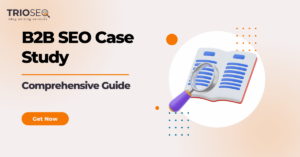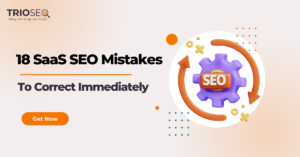Often overlooked in favor of more direct, transactional keywords, informational keywords are the foundation for building trust, authority, and a loyal readership.
In this blog post, we explore the unique characteristics of informational keywords. We’ll show you their significance in content creation and strategies for effectively integrating them into your digital marketing approach.
Whether you’re just starting with content creation or you’ve been at it for a while, you’ll get insights on how to use informational keywords to:
- Write the content your audience is looking for.
- Connect more meaningfully with your readers.
- Guide top-of-the-funnel users toward later conversion.
Let’s dive in!
What Are Informational Keywords?
Informational keywords are the words people typically use when looking for information, answers, or guidance on a specific topic.
Unlike transactional keywords used by searchers intending to purchase or perform a particular action, informational keywords are used when the intent is primarily to learn or understand something.
The significance of informational keywords in online search is notable for several reasons:
- Traffic generation: Search engines, like Google, prioritize content that satisfies users’ informational needs. Targeting these keywords can improve your website’s search engine rankings, giving you increased visibility and higher traffic.
- Authority and trust-building: You share knowledge and build a bridge of trust by providing valuable content that answers questions and needs. Therefore, readers will be more inclined to turn to you when ready to purchase.
- Content strategy development: Understanding the keywords relevant to your audience helps you develop more effective content strategies. Also, your niche website can rank well because informational searches include long-tail keywords that can be less competitive and more targeted.

What is Search Intent?
Search intent is why users type in words in a search engine. As an indicator of what people are really looking to get when surfing the web, search intent can fall within one of four categories:
Search intent
What users seek
How users write queries
Examples
Informational
Gather information and gain knowledge.
Questions on broad topics.
No specific product or service mentions.“What is climate change?”
“How to bake a cake”
Navigational
Find a specific website or page.
Include the name of a brand, product, service, or website.
“Facebook login”
“YouTube home page”
Commercial
Explore options or get more info before buying.
Include brand or product comparisons, the word “reviews,” or specific product features.
“Best smartphones 2023”
“iPhone vs. Samsung reviews”
Transactional
Make a purchase or engage in an online transaction.
Focus on specific products or services, clearly showing what they want to do.
“Buy MacBook Pro”
“Netflix subscription price”
Each type of search intent represents a different phase in the user journey, from seeking information to purchasing. Understanding these keyword intent types helps you tailor content and online strategies to meet the needs of your target audience effectively.
Why Does Search Intent Matter?
Search intent, or user intent, matters because when it’s known, it helps everyone who uses the internet get what they want:
- Users have questions and are looking for answers. So, they type in words that contain informational keywords reflecting their search intent.
- Content creators cater to users. So, they write content that provides answers, but they depend on search engines to gain visibility.
- Search engines cater to users. So, they want to ensure that the search results they return (websites like yours) are relevant to the user queries (search intent).
Users don’t have to wonder about search intent. They simply type in whatever crosses their mind and helps answer their questions on a topic. You, however, have all the reasons to wonder about search intent if you want these users to find your website.
Knowing users’ search intent allows you to create content that answers it, which, in return, leads to:
- Higher search engine rankings.
- Increased conversion rates.
- Effective content strategy.
- Reduced bounce rates.
- Keyword optimization.

How do informational keywords relate to search intent?
Informational keywords are closely tied to search intent, specifically catering to the informational needs of users. Not only do they relate, but optimizing one for the other will help you to:
- Tailor content to meet specific audience informational needs.
-
Attract users in the information-gathering phase, leading to:
- Fewer bounces
- Longer read times
- More page views
- Higher user engagement
-
Build trust and establish you as an authority in the field, resulting in:
- Increased user loyalty
- More frequent visits
-
Address the top-of-the-funnel needs.
- Attracting users early in their decision-making process and providing them with the information they seek can guide them through the funnel toward eventual conversion.
Let’s take this blog post as an example.
We wrote it for anyone with an informational search intent on “how to leverage informational keywords.”
We also optimized it with information keywords, such as “types of keywords,” “informational keywords list,” “informational keywords,” “FAQs,” etc.
So, when someone wants to learn about informational keywords, they’ll type in Google “What are informational keywords” or “How to use informational keywords.”
Google will show them our blog post among the search results because the information and the keywords in this post match the user’s search intent.

Characteristics of Informational Keywords
Informational keywords are about exploring and understanding a topic, as reflected in their length, language, and specificity.
Here’s what you should consider when trying to find informational keywords or optimize your content for informational search intent:
Length of informational keywords
Keywords in this category tend to be long-tail, which means they:
- Often consist of phrases or full sentences.
- Are phrased as questions (e.g., “how to,” “what is,” “why does”).
- Usually include more descriptive language to provide context to the information sought.
Language and tone used
Because they’re looking to dive deep into a topic, informational keywords might:
- Use more inquisitive or educational language that reflects curiosity or a desire to learn.
- Generally, don’t include sales-oriented language or brand names.
- Depending on the subject, they might include specific jargon or technical terms relevant to their research topic.
Relevance and specificity
Regarding relevance and specificity, informational keywords often:
- Focus on specific topics or subjects.
- Range from broad (e.g., “gardening tips”) to more specific (e.g., “how to care for a Bonsai tree”).
- Rely on trends, news, or seasonal interests, being context-dependent.

Informational Keywords List
Whether you’re a content creator, marketer, or SEO professional, recognizing and utilizing the different types of keywords in SEO will enhance your ability to address your audience’s specific informational queries.
Let’s dip our toes into some informational keyword examples to show you the different types and forms these keywords can take.
How-to Keywords
Examples: “how to tie a tie,” “how to bake a cake,” “how to change a tire.”
Who uses them? People seeking step-by-step instructions or guidance on performing a specific task or activity use how-to keywords.
These keywords are instructional and, therefore, used for detailed guidance. They cover many topics, from everyday tasks to more complex professional skills, and are often long-tail, more specific, comprising a phrase rather than just one or two words.
Because people are really curious about how to do something, the content you optimize for how-to keywords generates higher engagement. If readers resonate with it, they’ll spend more time on the page and even leave comments or share your posts.
Tutorial Keywords
Examples: “Photoshop tutorial for beginners,” “Java programming tutorial.”
Who uses them? People needing comprehensive and in-depth instruction on specific subjects, tasks, or software use tutorial keywords.
These keywords lean towards educational content, aiming for a thorough understanding or skill development. Content comes in longer formats designed for more prolonged user engagement, like detailed articles, video series, or interactive guides.
Tutorial keywords are prevalent in technical fields (like programming or software usage) and creative areas (such as photography, painting, or music production).

Guide Keywords
Examples: “guide to digital photography,” “beginner’s guide to investing.”
Who uses them? People who need an exhaustive overview and insights on various topics, products, or processes use guide keywords.
These keywords are characterized by depth and instructional nature, signaling a user’s desire for a detailed and complete understanding of a subject. The content you optimize for guide keywords:
- Can be presented in diverse formats, including detailed articles, e-books, infographics, or videos.
- Works well with a wide spectrum of subjects, from broad overviews like “Beginner’s Guide to Investing” to more niche topics like “Guide to Pruning Rose Bushes.”
- Typically has an educational tone, designed to walk the reader through the subject in a clear, structured manner.
Explanation Keywords
Examples: “why do leaves change color,” “how does the internet work.”
Who uses them? People who want a clear and in-depth understanding of various concepts, phenomena, or processes use explanation keywords.
These keywords stand out due to their focus on elucidation and simplification, which means the content must be enlightening and:
- Approach intricate or technical topics, making them digestible and accessible to a broader audience.
- Span many fields, from the intricacies of science and technology to the nuances of arts and humanities.
Definition Keywords
Examples: “definition of artificial intelligence,” “what is climate change.”
Who uses them? People seeking straightforward and brief explanations of specific terms, concepts, or jargon use definition keywords.
At their core, definition keywords help users grasp unfamiliar terms, demystifying specialized jargon or new terminologies.
These keywords stand out for their precision and clarity, helping readers to understand a term or concept in a brief yet comprehensive manner. They also fit many fields, from scientific and technical to legal, medical, and everyday language.

Comparison Keywords
Examples: “iPhone vs. Android comparison,” “MacBook Air vs. Pro differences.”
Who uses them? People who are keen on comparing and contrasting various items, concepts, or methods use comparison keywords.
These keywords help users make informed decisions and understand the nuances between options. Therefore, content shows pros and cons, differences or similarities between choices, and diverse viewpoints.
Comparison keywords fit contexts from product comparisons to complex assessments of theories, approaches, or methods in academic and practical fields.
List Keywords
Examples: “top 10 travel destinations,” “5 ways to boost productivity.”
Who uses them? People looking for collections or compilations who want to gather a series of items, ideas, or tips under a specific theme or topic use list keywords.
These keywords focus on compilation and enumeration, neatly presenting ideas in a digestible format. Their scope is broad, encompassing everything from practical advice and handy tips to curated collections in various categories.
Because it’s straightforward and scannable, the content optimized for list keywords is particularly appealing.
History Keywords
Examples: “history of the internet,” “evolution of smartphones.”
Who uses them? People keen on exploring historical information, timelines, or the origins of various subjects use history keywords.
These keywords have educational value, targeting diverse topics’ progression, development, or historical backdrop. You’ll encounter history keywords in various subjects, from the evolution of technology or cultural practices to company or product backstories.
Statistics Keywords
Examples: “global warming statistics,” “social media usage trends.”
Who uses them? People who rely on data-driven information and seek numerical data, research findings, or quantitative insights use statistics keywords.
These keywords support research. They aid in gaining a clearer understanding of a topic and decision-making. Statistics keywords are relevant in domains such as economics, health, science, marketing, and social studies, thus versatile and widely applicable.
Benefits Keywords
Examples: “benefits of meditation,” “advantages of a healthy diet.”
Who uses them? People eager to understand the positive aspects or advantages of various products, services, concepts, or practices use benefits keywords.
These keywords help to make informed decisions or grasp the value of something. They focus on positive outcomes, looking for what’s good and beneficial, meaning they play a vital role in the research phase of a user’s decision-making process.

Frequently Asked Questions (FAQs)
Examples: “FAQs about solar energy,” “common gardening questions.”
Who uses them? People looking for straightforward answers to common questions about various topics, products, or services use FAQs.
These keywords are crucial in addressing the queries most frequently posed by users. They typically manifest as direct questions and:
- Are incredibly versatile and relevant to nearly any field, product, service, or subject matter.
- Content is user-centric and addresses readers’ needs head-on.
- Come with clear, concise, and easily digestible answers.
Problem-Solving Keywords
Examples: “troubleshooting computer issues,” “remedies for a sore throat.”
Who uses them? People searching for practical solutions or methods to tackle specific issues or challenges use problem-solving keywords.
These keywords are primarily solution-oriented, offering pragmatic advice to resolve a problem or hurdle. Queries often carry an element of immediacy or urgency, users confronting a situation that demands a swift and effective solution.

How to Find Informational Keywords
Finding informational keywords involves a strategic approach with tools and specific methods. Here’s how to do it:
Keyword Research Tools
These tools are software or online platforms designed to help marketers, content creators, and SEO professionals discover and analyze keywords and phrases that people use in search engines.
If you’re looking for specific keyword research tool suggestions, consider:
- Google Keyword Planner: A part of Google Ads, this tool helps find keywords related to your business and provides data on search volumes and competition.
- SEMrush: Offers a comprehensive suite for keyword research, including the analysis of keyword trends, difficulty, and variations.
- Ahrefs: Known for its detailed keyword reports and competitor analysis, Ahrefs helps identify potential keywords and their search volumes.
- Ubersuggest: Provides keyword suggestions, trends, and search volume data, useful for identifying informational keywords.
- AnswerThePublic: Great for finding question-based keywords, as it visualizes search questions and suggests autocomplete searches from Google.

Methods for Effective Keyword Research
A specific method for effective keyword research ensures the process is systematic, targeted, and aligned with your marketing or content objectives. Some of the most popular methods for effective keyword research include:
- Analyzing Search Engine Results Pages (SERPs): Look at the content types currently ranking for your target keywords to understand user intent.
- Studying competitors: Analyze competitors’ content to see what keywords they target and how they address user queries.
- Using Related Searches: At the bottom of Google’s search results, “related searches” can provide insights into other popular queries.
- Leveraging social media and forums: Platforms like Reddit, Quora, and industry-specific forums can reveal common questions and topics of interest.
Tips to Find Long-Tail Informational Keywords
Finding informational keywords, especially long-tail ones, aims to understand and align with your target audience’s specific information needs.
You can attract qualified traffic and establish authority in your niche by providing valuable, relevant content that meets these needs. So, here are a few tips to help you achieve all that:
- Focus on question keywords: Start with question words like “how,” “what,” “where,” “when,” “why,” and “who.” These often lead to long-tail informational queries.
- Use keyword modifiers: Add modifiers like “guide,” “tutorial,” “tips,” “methods,” and “ideas” to broaden your long-tail keyword search.
- Explore Google’s Autocomplete and People Also Ask: These features often suggest long-tail keyword phrases based on popular searches.
- Consider user’s pain points: Consider the challenges or problems your target audience might face and how they phrase their search queries.
- Track trends and seasonality: Use tools like Google Trends to identify timely topics and seasonal interests that can lead to specific long-tail keywords.

Frequently Asked Questions (FAQs)
Below, we address some common queries related to the strategic use of informational keywords.
Which types of keywords should new websites focus on?
New websites should focus on long-tail and informational keywords, which are easier to rank for. Long-tail keywords are specific and have lower competition, while informational keywords address readers’ needs and help establish your site as a credible and valuable resource.
Can I use informational keywords to attract high-intent leads?
Absolutely. Creating in-depth, informative content in line with the informational queries of your target audience will make people see you as a trustworthy authority. Consequently, it can push readers through the sales funnel, from seeking information to showing interest in your products and services.
Conclusion
They say the best place to hide a dead body is on Page 2 of Google.
With your newfound knowledge, you’ll save your content from being buried in the digital graveyard and paint your website as the go-to resource in the field.
From now on, imagine each informational keyword as a brushstroke on a vast canvas. Individually, they may seem small, but they create the painting people spend hours on together.




![Featured Image - Mental Health Content Writing [Best Practices and Ethical Considerations]](https://trioseo.com/wp-content/uploads/2024/05/Mental-Health-Content-Writing-Best-Practices-and-Ethical-Considerations-300x157.png)
![Featured Image - Beginner’s Guide to CBD Content Writing [Tips Included]](https://trioseo.com/wp-content/uploads/2024/05/Beginners-Guide-to-CBD-Content-Writing-Tips-Included-300x157.png)

![Featured Image - [Ultimate Guide] SEO For Tech Companies That Outranks Competitors](https://trioseo.com/wp-content/uploads/2024/04/Ultimate-Guide-SEO-For-Tech-Companies-That-Outranks-Competitors-300x157.png)

![Featured Image - B2B SaaS SEO - Ultimate Guide [Strategy Included]](https://trioseo.com/wp-content/uploads/2024/04/B2B-SaaS-SEO-Ultimate-Guide-Strategy-Included-300x157.png)

